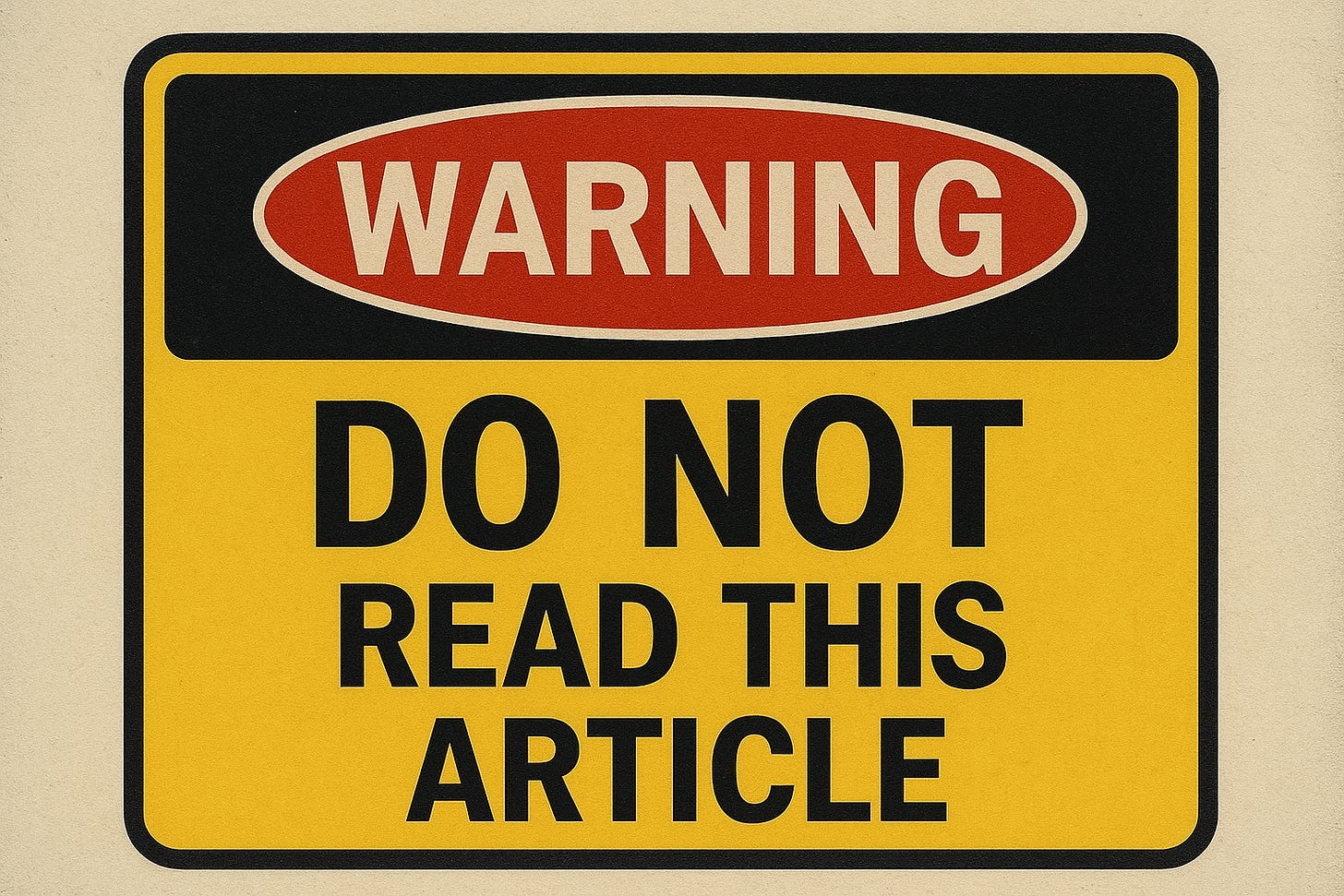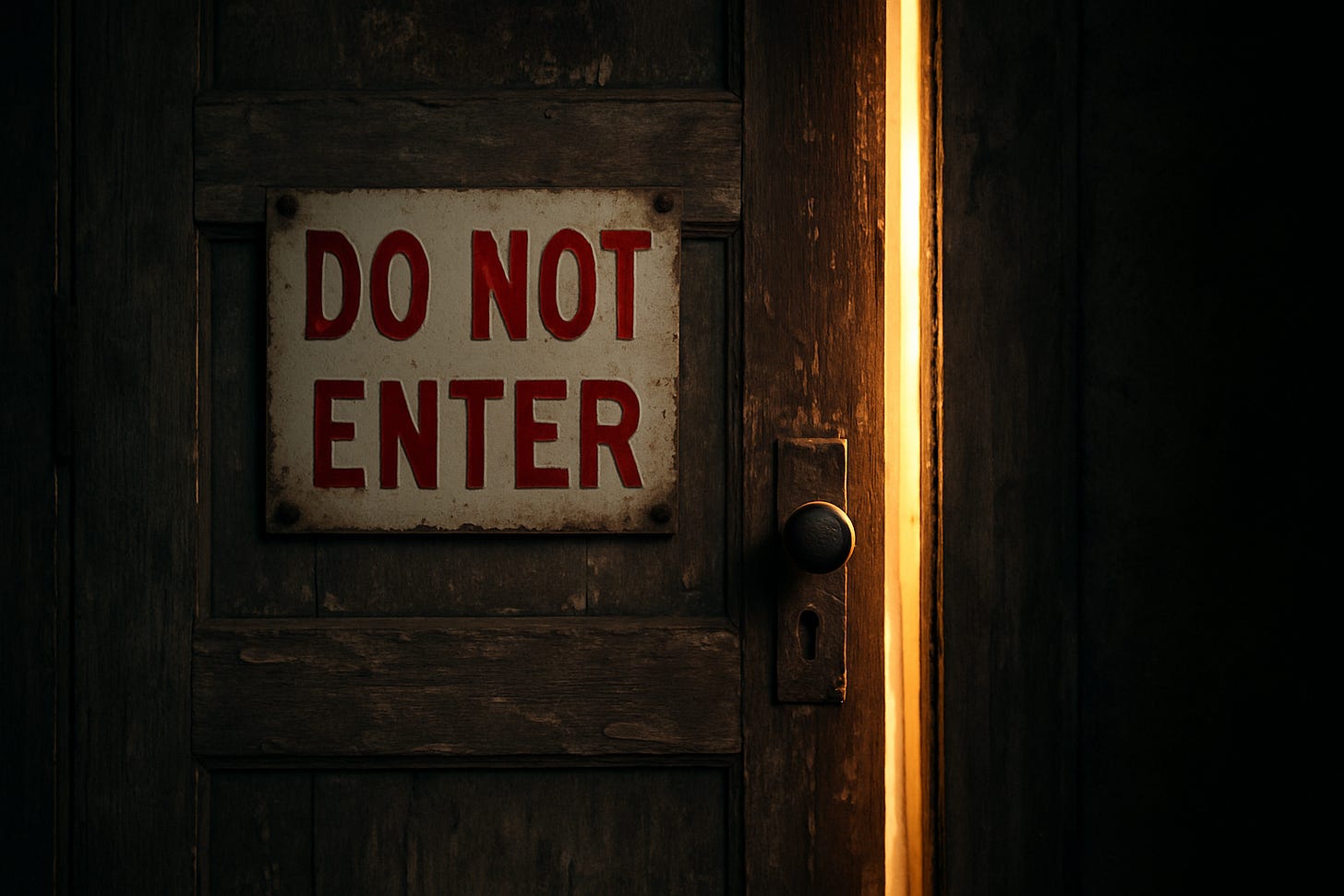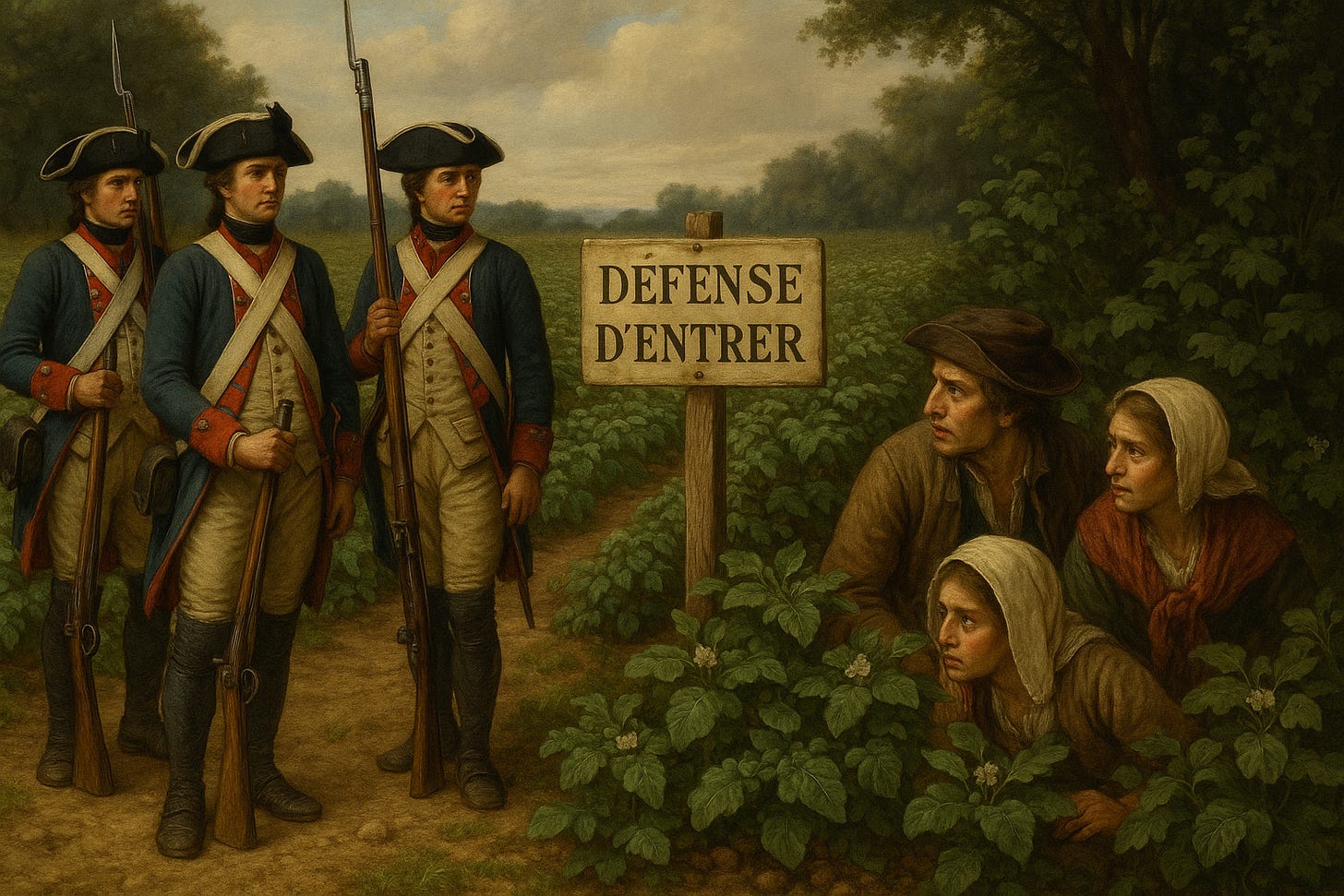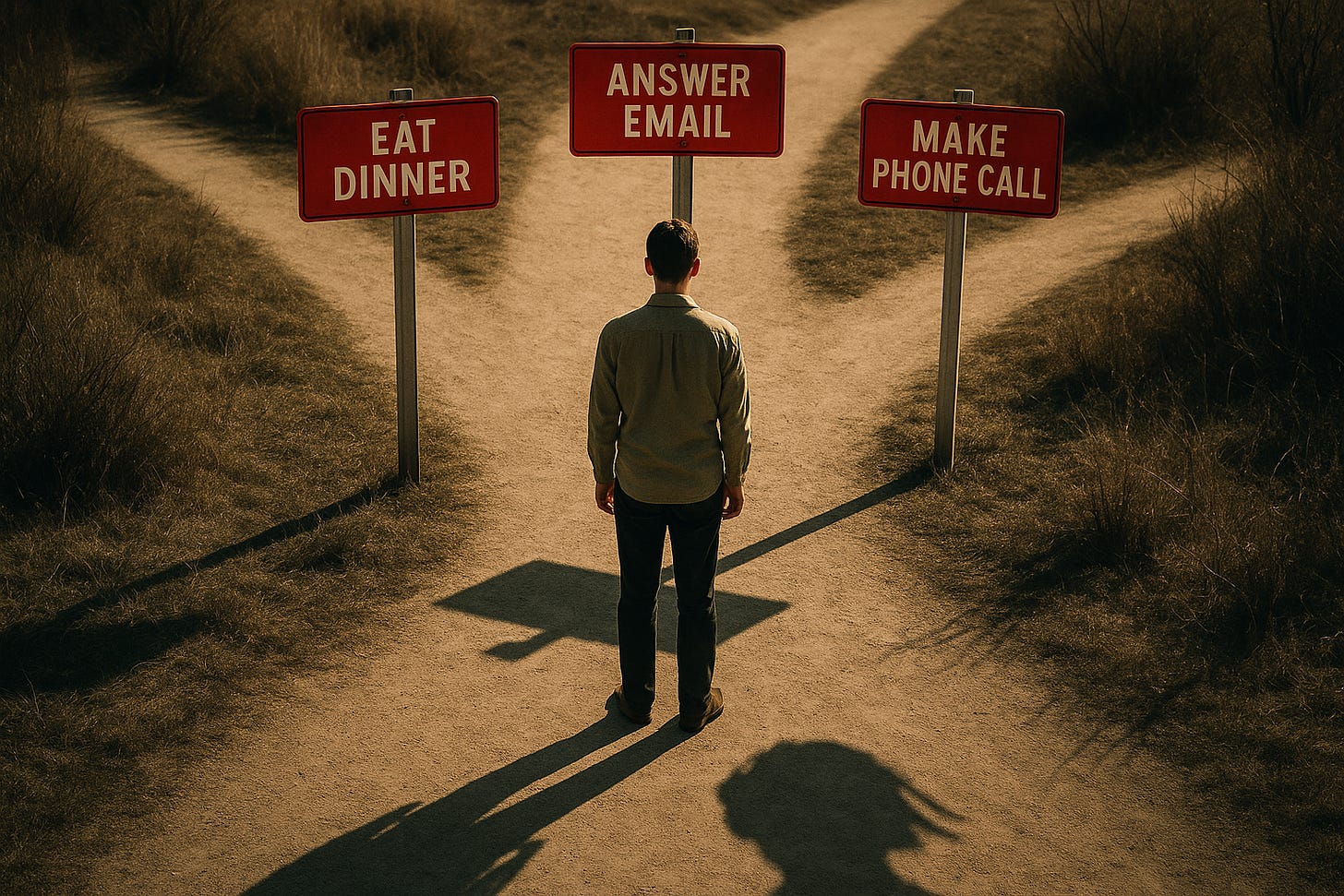Don't Read This Article
Unless you're the kind of person who hates being told what to do
You're going to have a quick look anyway aren't you? You can't resist an instruction like that. The fact that people will click a link that says "Don't Click Here" is why we're inundated with clickbait. And with this title, I am only adding to it, but hopefully it will make sense why soon.
If you are the type of person who thought: "I bloody well will read this article, you can't tell me what to do." You're not alone, it's a knee jerk psychological quirk called "Reactance" and it's the reason that "Keep Out!" signs might as well read "Come on in and have a look around."
The Curious Allure of the Forbidden
Have you ever been at a shopping mall or other public building and walked past a random door marked "No Entry" and felt an urge to take a look behind it?
If I was in a room with ten unmarked doors and one that said "No Entry", I would have no interest in the other nine.
I have aways felt a compulsion towards the forbidden, to see what people don't want you to see, to do the things you're not meant to do, purely because you're not meant to, but I didn't know there was a name for it. When I learned it, I didn't think it fit. If you had asked me what "Reactance" meant I would have guessed that it was a term from chemistry that means something like "an action that occurs in relation to external stimulus."
I like to think of what I consider to be better names for the things I think about, that describe them in more interesting ways. The term I came up with is Choice Rebellion.
Choice Rebellion
The instinctive, often irrational urge to reject instructions or orders when they appear to remove your ability to choose, resulting in deliberate defiance or doing the opposite, purely to reassert autonomy.
Choice Rebellion happens not because the instruction is unreasonable, but because the lack of choice itself triggers a psychological backlash. The moment your brain feels boxed in, it decides it must go rogue, if only to remind yourself that you are still in charge.
In its simplest form, it's just your brain turning the tables because it senses your freedom is being restricted. Even if it's freedom to do something you never wanted to do anyway, like reading this article!
The People's Vegetable
The forbidden fruit tastes sweetest, as the saying goes. I’m sure it’s the same for vegetables. If you ask any self respecting Brit what their favourite vegetable is, they'll probably tell you its the potato. But that hasn't always been the case, in 18th century Britain potatoes were not the staple that they are now, in fact they were classed as weird, foreign and probably poisonous.
Who do we have to thank for bringing spuds to the masses? A Frenchman. Antoine-Augustin Parmentier was convinced that potatoes were the cure for famine, but the people did not agree, and as there was no potato marketing division in France back then Parmentier had to take matters into his own hands.
He had the genius idea of using reactance, or reverse psychology. He had fields of spuds planted and during the day the fields were guarded by soldiers, any peasants who approached were told in no uncertain terms, “these vegetables aren't for you", they're far too valuable”. But at night, the guards would disappear allowing the public at large to plunder the fields and fill their bellies.
The practice is alleged to have been used in several European countries and as a result my dream of opening a potato only restaurant serving dishes containing solely spuds is now possible. We'll serve: chips, fries, crisps, jacket potato, mashed potato, roast potatoes, boiled potatoes, hash browns, potato waffles, potato smilies, tater tots, potato skins, potato cakes, rosti and sauteed potatoes.
The Science Behind Our Stubborn Minds
What makes this stubborn quirk so fascinating is how deeply wired it is. Psychological Reactance theory, first proposed by psychologist Jack Brehm in 1966, says that when we believe our behavioural freedoms are being threatened, we experience an unpleasant emotional state that motivates us to restore those freedoms.
And even the smallest limitations can sometimes trigger the strongest rebellious urges. The actual value of what's being restricted isn’t always relevant, but your perception of it is.
No Trespassing (Offenders Will be Prosecuted)
When you see a "Please keep off the grass" sign, has anyone ever obliged? I bet everyone reading this has at least touched a foot on the grass in protest of the sign, no matter how neat the grass looks.
Lawn bowls, for those who don't know is a particularly British tradition in the nicer weather, you will see immaculately kept rectangles of grass with people dressed in white, rolling larger black balls towards a smaller white one. The lawns are flat, smooth and sacred. You need to wear special shoes to even step on them. These bowling greens are often fenced off with signs that say "Members only", "No Trespassing" etc.
So what happens when everyone goes home?
The kids decide that they want to climb the fence and play football on the green.
So the bowls club has a meeting and decides that to stop the kids from messing up the grass, not only will they maintain the bowling green to an extremely high standard, they will also maintain the nearby football pitch as well, cutting the grass, painting the lines, ensuring there are nets on the goals. Surely the kids will love it so much they will play where they are supposed to and not mess up the green? You would think so wouldn't you, but you would be wrong.
I would love to tell you that the solution to this problem was that the club decided to take down the fence and signs and invite the children to play, and that when there was no barrier to entry the kids didn't want to play there anymore and everyone lived happily ever after.
What actually happened is that the bowls club got an electric fence installed!
When Passion Becomes Obligation
Reactance isn't just about curiosity and getting one over on the man. It can also turn you against the things you love. If you have ever had a hobby that you decided to monetise, you might have met with reactance. Something you'd do in every spare minute just for the sheer joy of it? Then, one day, you decide to start a side hustle.
After the initial excitement wears off and maybe the money starts coming in, so do the deadlines and client requests, and what once felt like fun starts feeling like work. The moment your passion became an obligation, your brain shouted, "You're not the boss of me!" and now maybe your favourite pastime feels like doing taxes.
I love writing and I could easily spend my days babbling on about whatever interests me, but I am terrified that if I ever did decide that I wanted to try and earn some money from it that I would eventually lose the love for it for this very reason.
This paradox shows up all over:
The book you were excited to read until it became assigned for a class.
The exercise routine you loved until your doctor prescribed it.
And even the song you loved until it became a summer anthem and turned up on TV adverts.
What makes this particularly weird is that we put these restrictions on ourselves, so when we feel resistance it's confusing. "How can I hate something I chose?" But the brain doesn't care where the rules come from, it still feels like pressure, self-imposed or not.
Reactance Amplified
Neurodivergent brains, especially those of us with ADHD, tend to feel this effect even more intensely. ADHD minds thrive on novelty and curiosity and when external forces start imposing rules and expectations, (or even self-imposed ones), our brains can shift into rebellion mode faster than a teenager told to tidy their room. (And if we had just not mentioned anything, they might have tidied their room of their own accord!)
The neurochemistry in play is like a battlefield with the brain struggling with dopamine regulation, our motivation / reward systems powered by activities that provide us with interest and enjoyment, then something becomes an obligation and that creates an invisible wall of resistance.
Throw in Rejection Sensitive Dysphoria (RSD), which can make criticisms or restrictions feel personal. Or Pathological Demand Avoidance (PDA), where the mere mention of a task can trigger overwhelming anxiety, into the mix and suddenly you're in an emotional freefall. The suggestion that you should or should not do something, even something you typically enjoy or of no consequence, can trigger a cascade of complicated feelings about autonomy, worth, and capability.
For autistic individuals, the story is slightly different but equally intense. Many autistic people have a deeply rooted sense of justice and autonomy and rules or restrictions with no obvious logical foundation can trigger real discomfort.
This might explain why so many neurodivergent people gravitate toward entrepreneurship, creative fields, or roles with high degree of autonomy. To avoid as much reactance as possible to maintain their mental wellbeing.
Navigating Reactance
What can we do about it if it becomes a problem? Notice it, and realise that any rebellious streak isn't a flaw, just a quirk of your brain. This alone might help you manage your response.
I received a comment on a post a few days ago from a first class troll who who wrote me a thesis of deliberately combative ideas, the kind of thoughts that maybe only Andrew Tate would agree with. I felt the immediate challenge response. The need to get into a debate, in the moment I would have liked nothing better than to spend an hour intelligently destroying all of their points with logic and common sense, but then I checked myself.
You don't have to attend every argument you're invited to.
I did reply, but I didn't get drawn in.
Another quote which comes to mind is by George Carlin
Never argue with a fool, because he will drag you down to his level and beat you with experience.
That might just be me being petty or it might be reactance. Our urges and feelings don't disappear when we notice them, but at least by noticing them we give ourself a chance to determine what actions are really in our best interest, rather than acting on impulse.
Embracing the Rebel Within
Experiencing reactance isn't something that's wrong with you, it's just your brain reminding you that autonomy and freedom matter.
Next time you see a "Keep Out" sign or feel resentful toward something you used to love, smile at the stubborn toddler inside you and remember that this quirky response has come from thousands of years of evolution. Questioning poor leadership or orders coming from incompetent leaders might just have saved our ancestors from blindly walking towards their deaths. And it can help us in a world that constantly pushes for conformity, if we are self aware enough to choose when to use it and when to let it slide.
Reactance can even become a compass pointing toward what you truly value. When you feel that resistance rising you might realise something meaningful about your core values.
So, I'll make a deal with you. I won't tell you to share this article with friends who might relate to it. I definitely won't suggest leaving a comment describing when reactance has bitten you the hardest. But I absolutely forbid you from subscribing for more psychological explorations like this one.








I have just read half of it and I am already loving it. I am glad I subscribed your page as I have been meaning to learn more about human psychology. Thank you for sharing it with us. 😊🤝
How many things I’ve done because I either wasn’t allowed to or someone told me “you won’t do it.”
Only movie I wasn’t allowed to watch as a kid was the exorcist. Therefore, I waited until my family was asleep one night and watched it by myself. Prob around 8/9 yrs old. I still remember how scared I was walking past my sister’s bedroom as the moonlight illuminated her face on my way to bed. Just waiting on her to raise up and then make her head spin around.